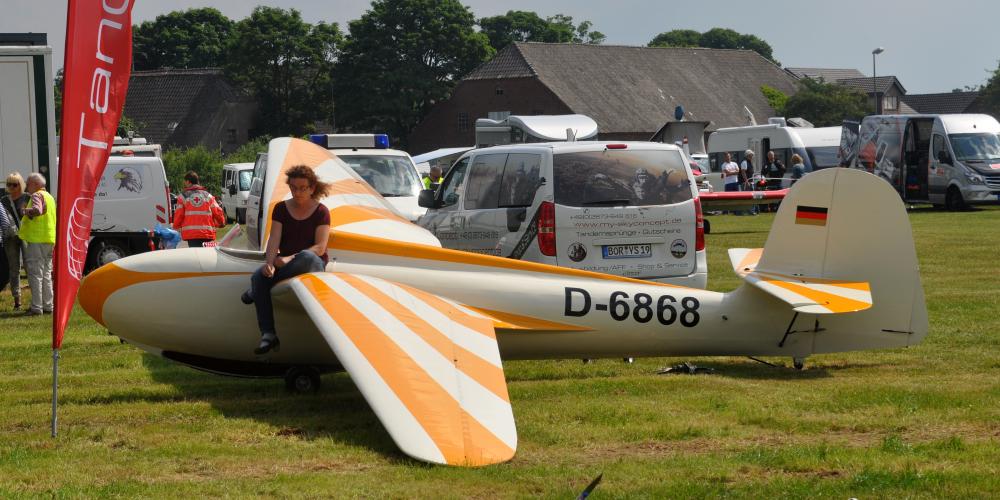DFS The Deutsche Forschungsanstalt für Segelflug (DFS) was formed in 1933 to centralise all gliding activity in Germany, under the directorship of Professor Georgii. It was formed by the nationalisation of the Rhön-Rossitten Gesellschaft (RRG) at Darmstadt. DFS HabichtThe DFS Habicht (German: "Hawk") was designed in 1936 by Hans Jacobs as an aerobatic sailplane, with support provided by the Deutsche Forschungsanstalt für Segelflug. Four planes were made available for the Olympic Games of 1936, where the maneuvers of the Habicht over and literally inside the Olympic stadium enthralled spectators. The flight qualities of the Habicht were praised by many pilots. It participated in many airshows abroad before the war, including the 1938 National Air Races in Cleveland, Ohio. 
DFS Habicht, registration D-6868, built 2012, replica
|